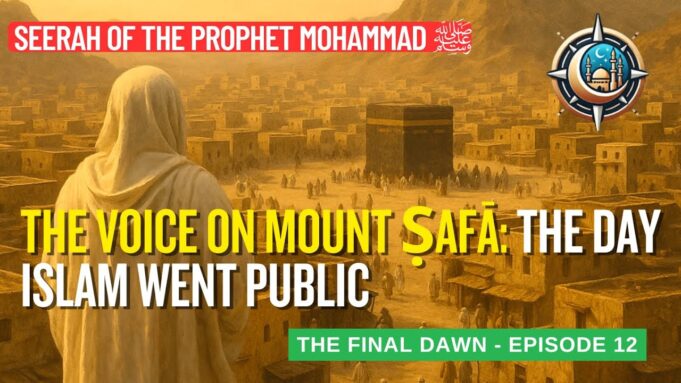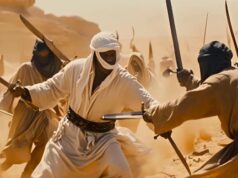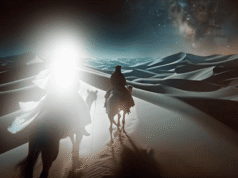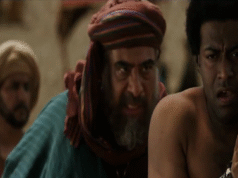For three long years, Islam moved quietly —
whisper to whisper, heart to heart.
In the narrow homes of Makkah, faith was a secret flame.
Small gatherings in the shadows. Qur’an recited in hushed tones.
A Prophet who carried the truth — not yet to the world, but to a few chosen souls.
And then… the command came.
A verse that would change everything.
“And warn your closest kin.” (Surah AshShuʿara, 26:214)
With that, the silence of secrecy ended.
The time for shadows was over.
The light was about to rise.
The First Call — The Feast of Banu Hashim
The Prophet began where every message begins — at home.
He invited his family — the sons of ʿAbd alMutallib — to a meal.
Forty men filled the gathering, among them Abu Talib, his protector; Hamzah, his brave uncle; and Abu Lahab, whose heart would soon harden in fury.
When the food was finished, the Messenger of Allah stood.
His voice was calm, yet filled with gravity.
“O children of ʿAbd alMuṭṭalib, I do not know of anyone who has brought to his people something better than what I bring to you. I bring you the word of Allah — that will benefit you in this world and the next.”
He called them to worship the One God.
To leave behind idols carved by their own hands.
To seek salvation before a day when lineage would mean nothing.
Then came his question — the question that would echo through time:
“Who among you will support me in this mission?”
The room fell silent.Eyes lowered. Hearts uncertain.
Until one voice — small, but firm — broke through.
A boy barely in his teens.
“I will, O Messenger of Allah.” It was ʿAli bin Abi Talib.
The gathering ended quietly.
But history had just turned a page.
The Call from Mount Safa
Soon after, another command descended —
a command not for the home, but for the city.
“Proclaim openly what you are commanded…”
So he climbed the slopes of Mount Safa, the ancient hill near the Kaʿbah —
where tribes once shouted warnings of approaching armies.
Now, another warning would be given — not of men, but of eternity.
He called out, his voice echoing through Makkah’s narrow streets:
“O Banu Fihr! O Banu ʿAdī! O Banu Kaʿb ibn Luʾayy!”
They came — men of Quraysh, merchants, leaders, kin —
their curiosity alive, their trust in alAmīn unbroken.
“If I told you an enemy stood behind this hill, ready to attack, would you believe me?”
They answered without hesitation:
“Yes — we have never known you to lie.”
And then, the truth:
“Then know that I am a warner to you before a severe punishment.I call you to worship Allah alone.Save yourselves from the Fire.”
He turned to each family by name —
and even to his beloved daughter Fatimah —
reminding them that no soul is saved except by faith.
The crowd fell silent.
The air trembled.
Centuries of tradition had just been challenged.
Then a voice tore through the stillness.
Abu Lahab — his own uncle — shouted in rage:
“Is this why you gathered us here? May you be ruined this day!”
He hurled dust and stormed away.
The crowd dispersed.
But the message had been delivered.
From that mountain, the whisper became a voice —
and Makkah would never be the same.
The Council of Quraysh — Fear in Dar alNadwah
The echo of that voice reached every corner of Makkah.
The chiefs gathered in their council chamber — Dar alNadwah —
a place where wars were planned, and power was preserved.
Now they gathered for one man.
Abu Jahl. ʿUtbah ibn Rabīʿah. AlWalīd ibn alMughīrah.
Umayyah ibn Khalaf. Suhayl ibn ʿAmr. Abu Sufyan ibn Ḥarb.
Names that carried weight.
Faces that carried fear.
They debated long into the night.
What could they do with Muhammad — a man they could not accuse of lying, yet could not allow to live as he pleased?
If the idols fell, their wealth would fall with them. If the Kaʿbah became a house of one God, their authority would vanish.
And so, they decided: persuasion before persecution.
The Offer of Power
They sent ʿUtbah ibn Rabīʿah — the diplomat, the silvertongued elder.
He found the Prophet sitting alone near the Kaʿbah.
He spoke softly:
“O Muhammad, you have brought division among your people.
But perhaps this can end. If you want wealth, we will make you the richest among us. If you want leadership, we will make you our chief. If it is kingship you desire, we will crown you as king. If you desire women, name them — and they are yours.”
The Prophet listened in silence.
Then he said, gently: “Have you finished, Aba alWalīd?”
“Yes,” ʿUtbah replied.
Then came the reply — not from the Prophet’s own words,but from the words of his Lord:
“Ḥa Mīm.
A revelation from the Most Merciful, the Most Compassionate.
A Book whose verses are detailed, an Arabic Qur’an for a people who know…”
(Surah Fuṣṣilat, 41:1–3)
The verses flowed like light through the air. ʿUtbah’s face changed.His heart trembled.
When the recitation reached the verse of prostration, he fell — forehead to the ground — overwhelmed.
Moments later, he returned to Dar alNadwah pale, shaken, silent.
“By Allah,” he said,
“I have heard words unlike anything before.They are not poetry. Not magic. Not madness. Leave this man alone. If others destroy him, you are spared.If he prevails, his victory will be yours.”
But arrogance drowned wisdom.The chiefs sneered.They refused to listen.
And so, the door of dialogue closed.The age of persecution began.
The Dawn of Resistance
The Prophet had climbed a mountain — and with that climb, he had lifted the veil of silence forever.
The Quraysh no longer saw a nephew, a trader, a man they once trusted.
They saw a revolution.
But the message of Tawḥīd — the Oneness of Allah — was not one they could cage.
Through mockery, exile, and pain,it continued to grow — carried by hearts that refused to bow to anything but Him.
The Prophet had delivered the truth to his family, to his city, to his people.
Now… the world was beginning to hear it.
And Makkah — once asleep in idolatry — had just awakened to the dawn of its destiny.









